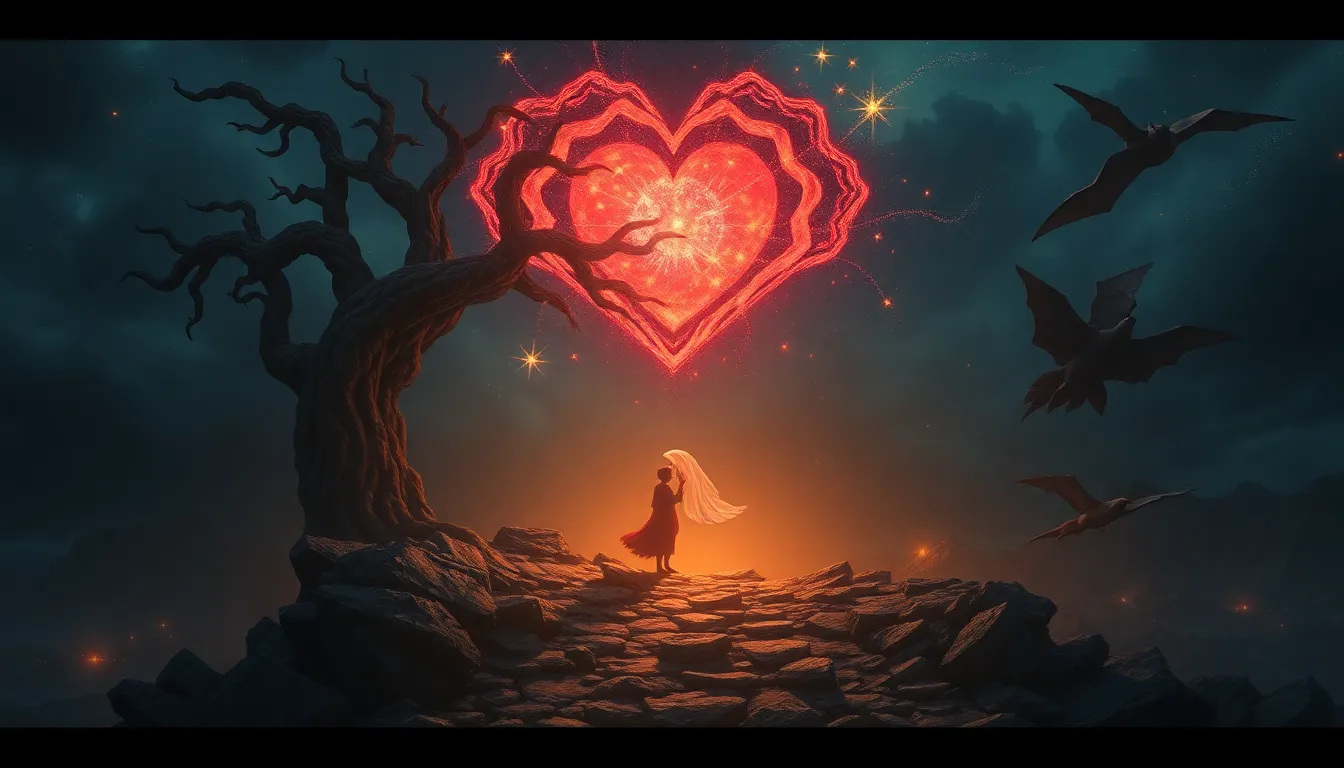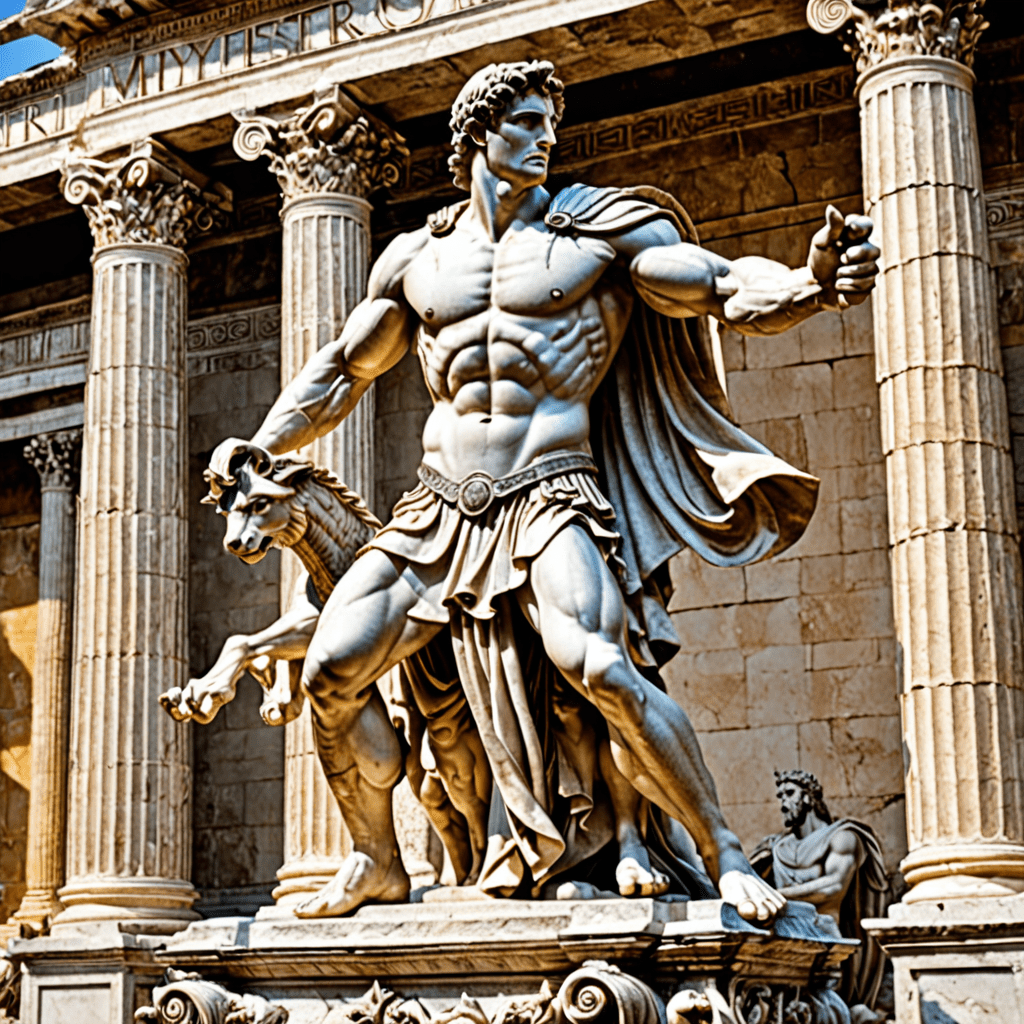The Heart’s Journey: Epic Quests for Love in Mythology
Introduction: The Universal Quest for Love
Love has always been a central theme in mythology, weaving through the tales of ancient civilizations and shaping the narratives that define cultures. The quest for love, whether it leads to moments of joy or heart-wrenching despair, is a universal experience that resonates across time and space. Epic quests in mythology often express the trials and triumphs of love, illustrating the lengths to which individuals will go to find or protect it.
Defining Love in Mythological Context
In mythology, love can take many forms. The interpretations of love can be broadly categorized into:
- Romantic Love: The passionate and often tumultuous love between partners.
- Platonic Love: A deep, non-romantic bond that transcends physical attraction.
- Familial Love: The unconditional love among family members that binds them together.
The role of love in shaping cultural narratives is significant, as it often drives the actions of characters, motivates heroes, and creates conflicts that propel stories forward.
The Hero’s Journey: Love as Motivation
Joseph Campbell’s concept of the monomyth, or the hero’s journey, can be applied to many love stories found in mythology. In these narratives, love serves as a powerful motivation for the hero’s actions. Some notable examples of heroes driven by love include:
- Hercules: His labors were often influenced by his love for others, especially his family.
- Theseus: His quest to rescue Ariadne from the labyrinth showcases love’s driving force.
- Odysseus: His longing for his wife Penelope is the catalyst for his arduous journey home.
Case Study: Orpheus and Eurydice
The myth of Orpheus is a poignant tale of love transcending death. Orpheus, a gifted musician, falls deeply in love with Eurydice, who tragically dies shortly after their wedding. Overcome with grief, Orpheus ventures into the underworld, determined to bring her back. His music moves Hades, the god of the underworld, who allows Eurydice to return to the living on one condition: Orpheus must not look back at her until they reach the surface.
This myth explores profound themes such as:
- Loss: The deep sorrow of losing a loved one.
- Longing: The intense desire to reunite with a beloved.
- Betrayal: The tragic consequence of doubt and impatience when Orpheus looks back.
Divine Love: The Interplay of Gods and Mortals
In many mythologies, divine love stories illustrate the complex relationships between gods and mortals. For instance, in Greek mythology, the love between gods such as Aphrodite and Ares often leads to both chaos and beauty in the mortal realm. These interactions demonstrate how the whims of the gods can impact human love affairs:
- Aphrodite and Adonis: A tale of love and loss that showcases the fragility of beauty.
- Zeus and Hera: Their tumultuous relationship highlights the challenges of love, even among the divine.
- Jupiter and Europa: A story that combines transformation and desire, leading to the founding of nations.
Cultural Variations: Love Quests Across Mythologies
Love quests are not exclusive to one culture; they can be found in various mythologies around the world. A comparative analysis reveals unique elements and common threads:
- Hindu Mythology: The story of Radha and Krishna explores divine love and devotion.
- Norse Mythology: The tale of Freyja and her search for her lost husband highlights love’s complexity.
- Chinese Mythology: The legend of the Cowherd and the Weaver Girl emphasizes the power of love across cosmic divides.
The Role of Trials and Tribulations in Love Stories
Trials and tribulations are essential in love stories, enhancing the narrative and showcasing the resilience of love. These challenges often symbolize deeper meanings, representing:
- Growth: Overcoming obstacles leads to personal transformation.
- Commitment: Enduring hardships together solidifies bonds.
- Sacrifice: True love often involves giving up something of great value.
Love’s Transformation: From Passion to Wisdom
Many love quests lead characters on a journey from passion to wisdom. As they navigate their romantic journeys, they often gain insights about themselves and the nature of love. Notable examples include:
- Alcyone and Ceyx: Their tragic love teaches the importance of understanding and acceptance.
- Pygmalion: A sculptor who learns the difference between idealized love and real connection.
- Persephone: Her dual existence teaches about the cycles of love and loss.
Modern Interpretations: Mythology’s Influence on Contemporary Love Stories
Ancient myths continue to inspire modern literature, film, and art. Contemporary love stories often draw upon these mythological themes, reflecting the timeless nature of love quests. Examples include:
- Films: Movies like “Eternal Sunshine of the Spotless Mind” echo Orpheus and Eurydice’s themes of love and loss.
- Literature: Novels such as “The Song of Achilles” reimagine mythological love stories for new audiences.
- Art: Artists often depict mythological lovers to explore themes of passion and tragedy.
Conclusion: The Timeless Nature of Love’s Quest
The enduring power of love in mythology speaks to its universal relevance. Epic quests for love remind us of the trials and tribulations faced by lovers throughout history. As we reflect on these narratives, we find that the quest for love is not only a journey of the heart but also a journey of the soul, resonating deeply in our contemporary lives. The lessons learned from these tales of love—sacrifice, commitment, and growth—remain as significant today as they were in ancient times.




